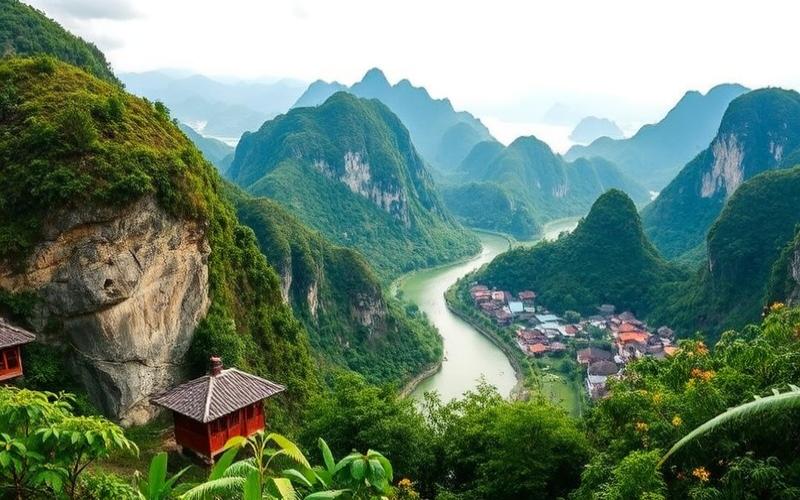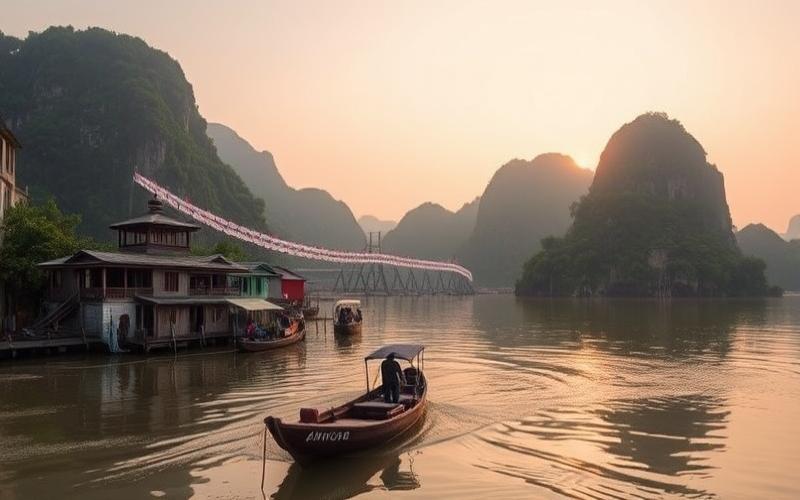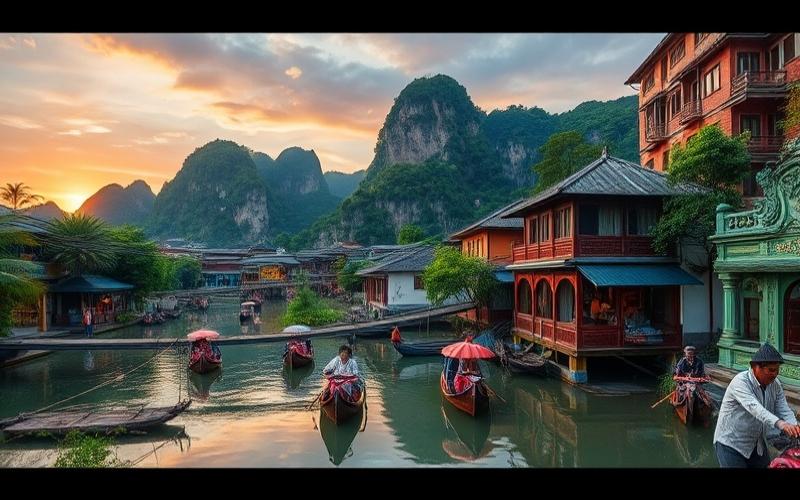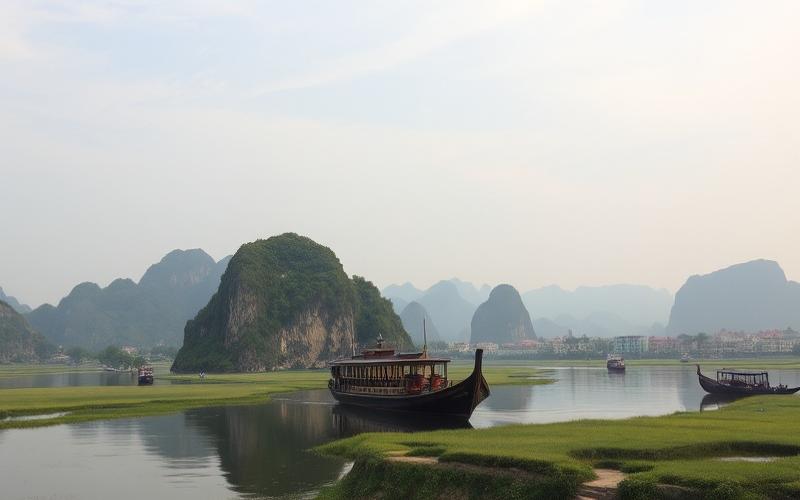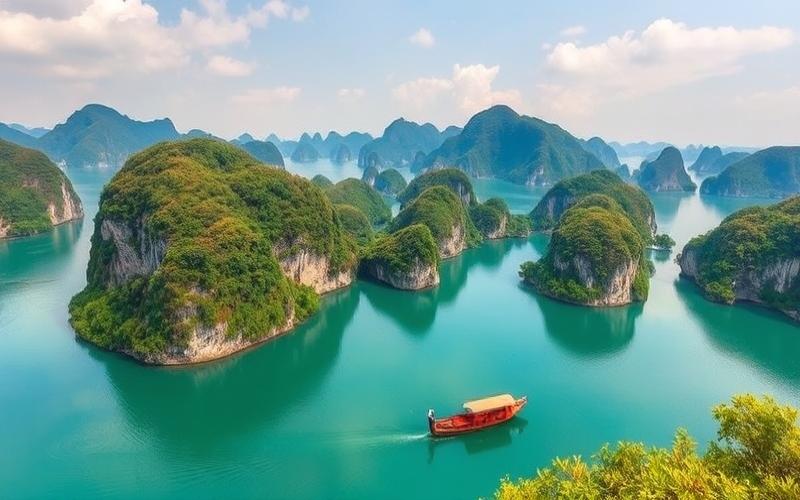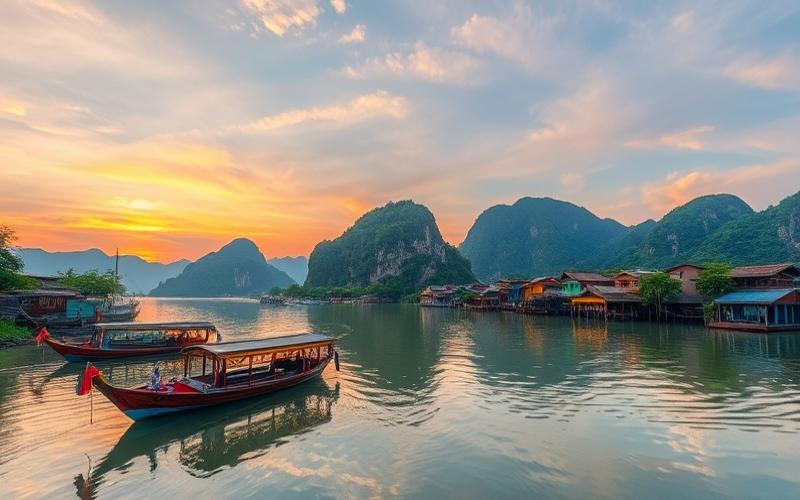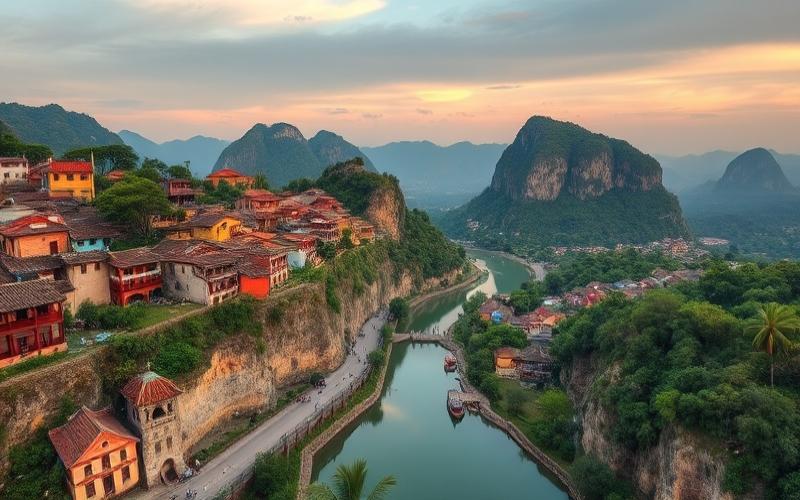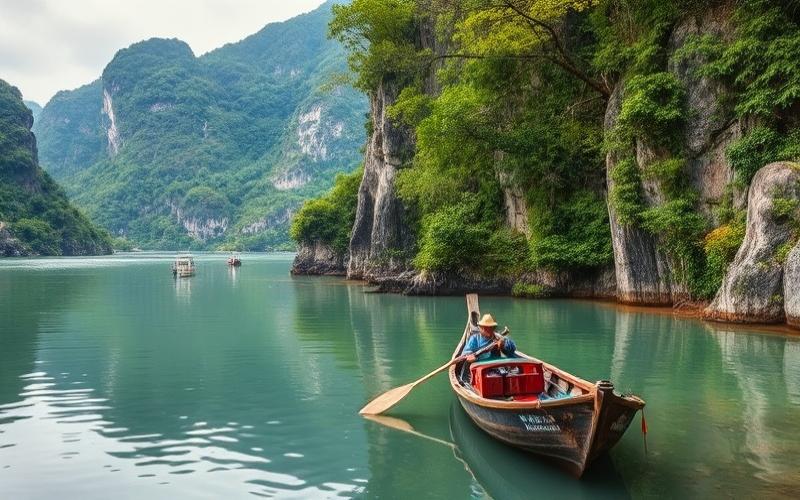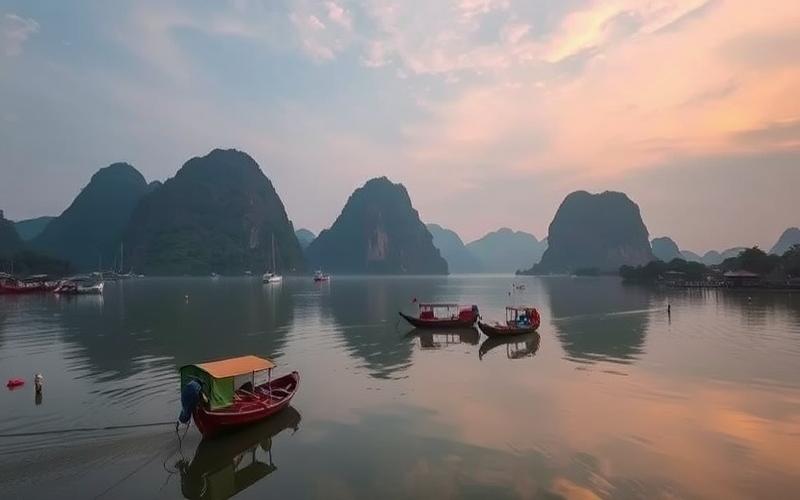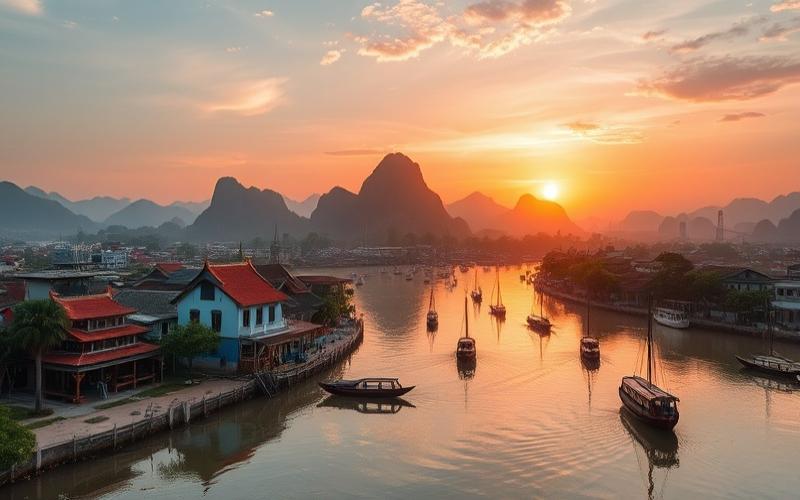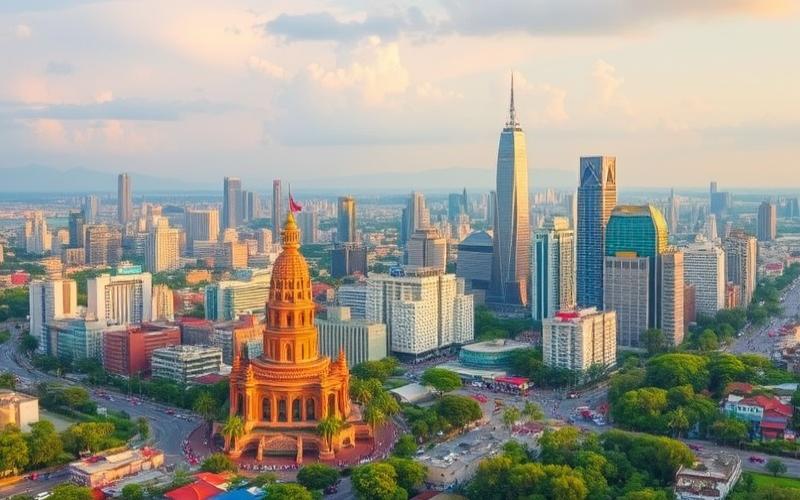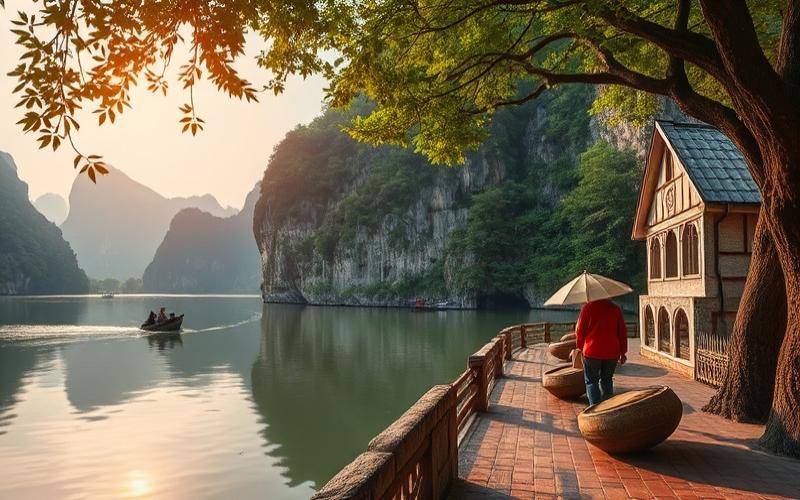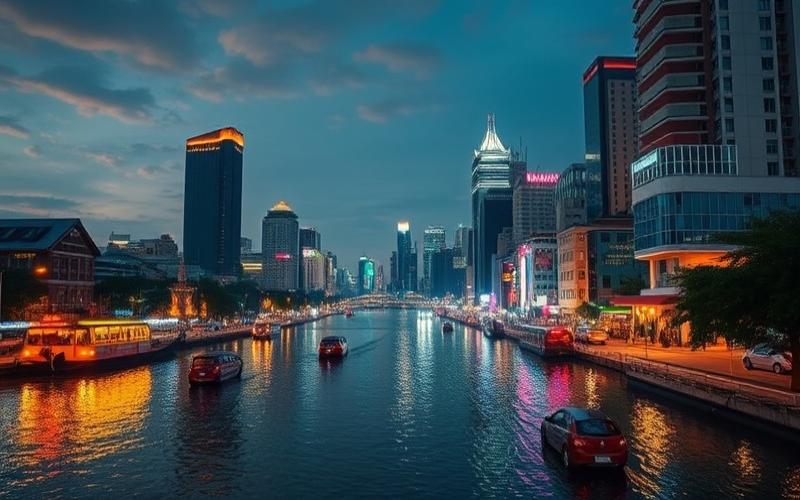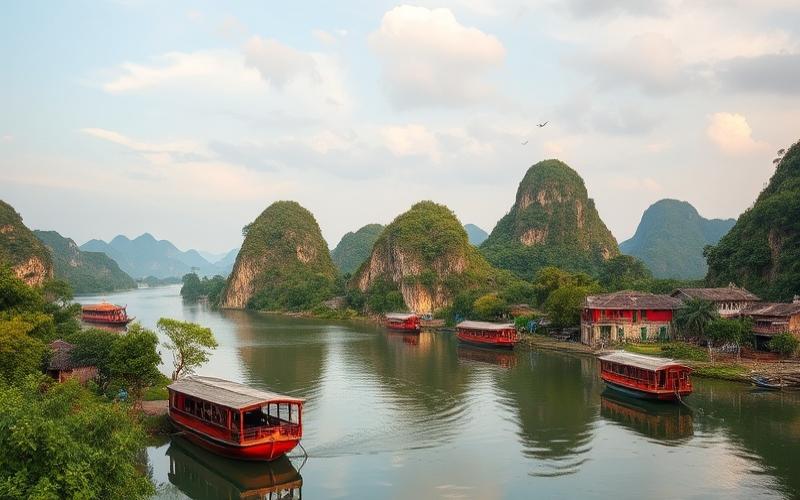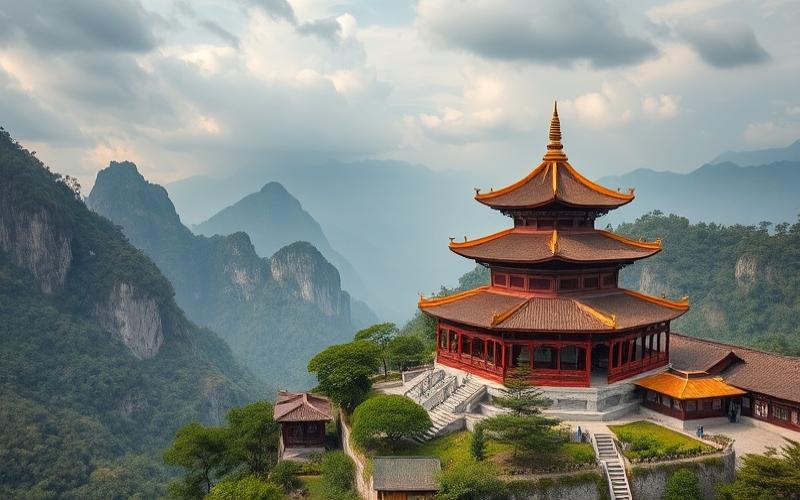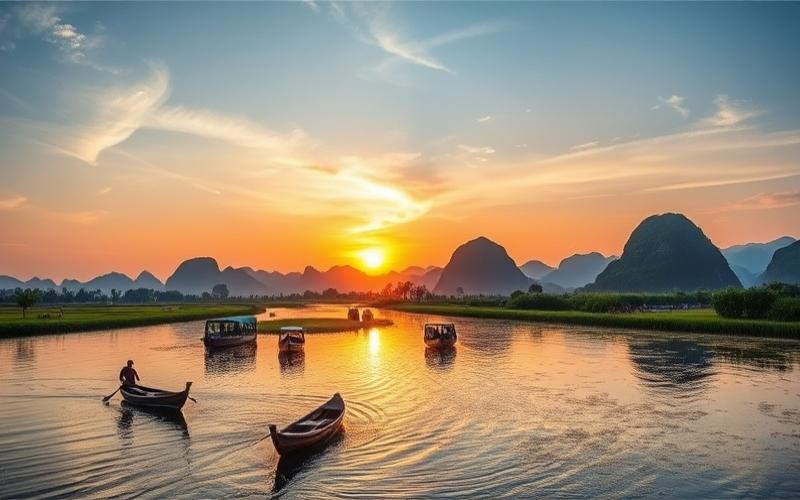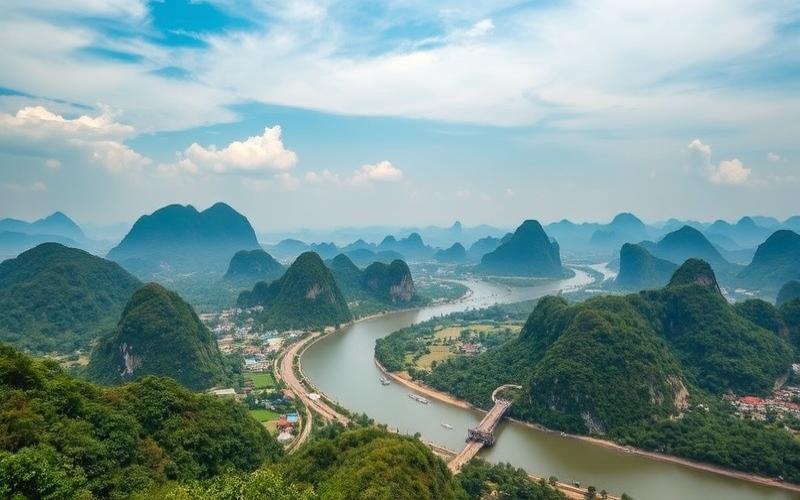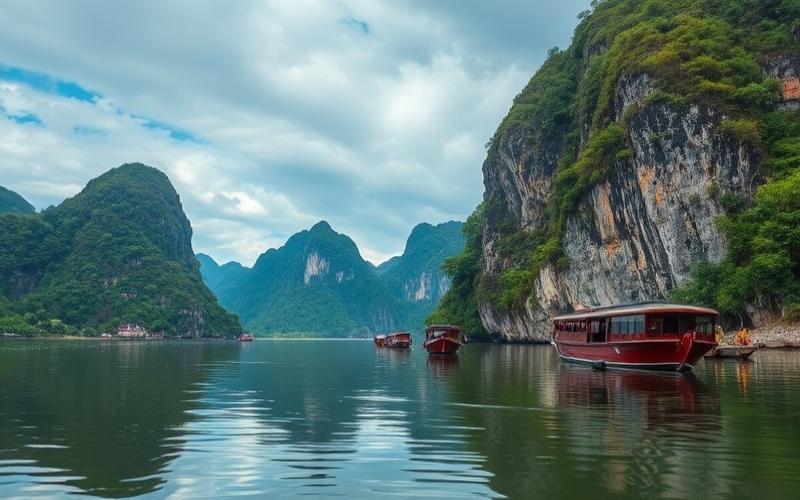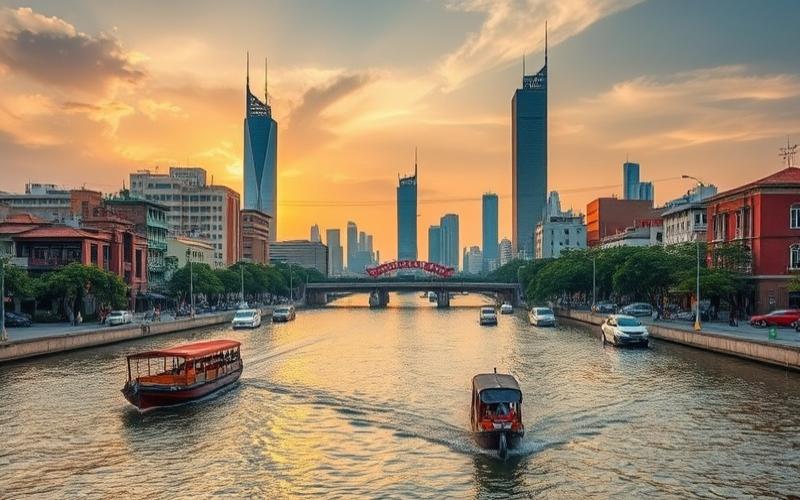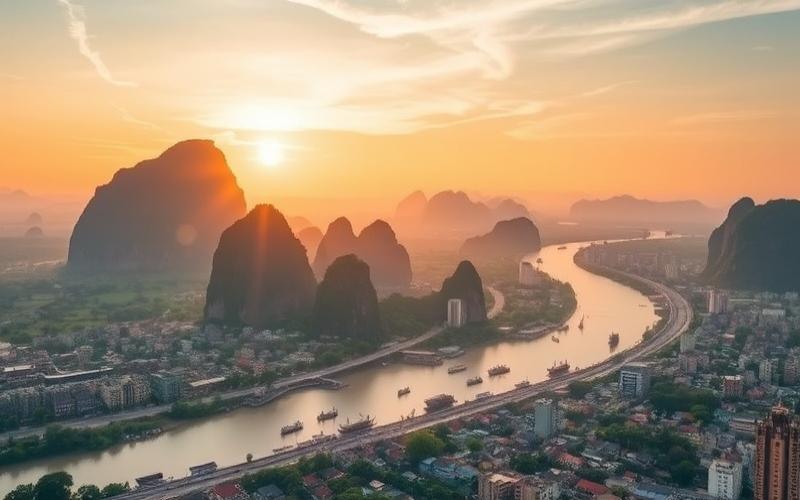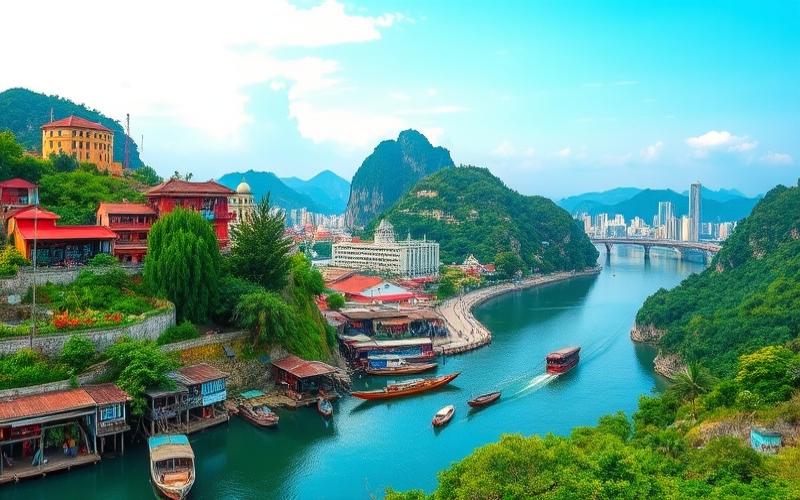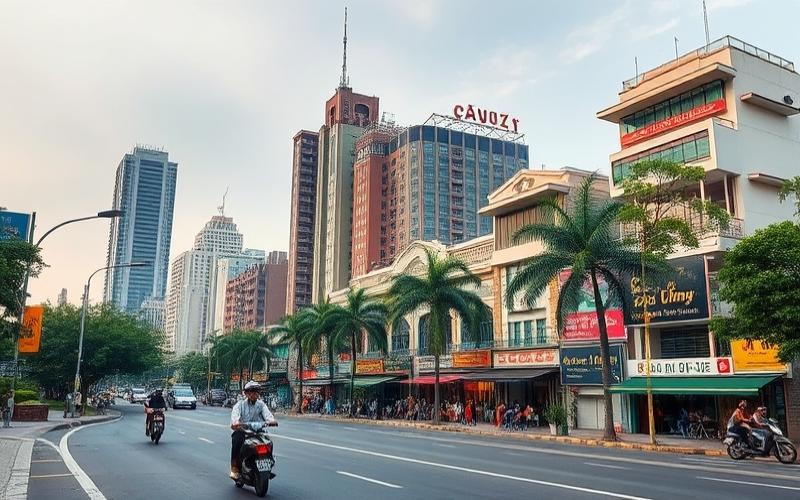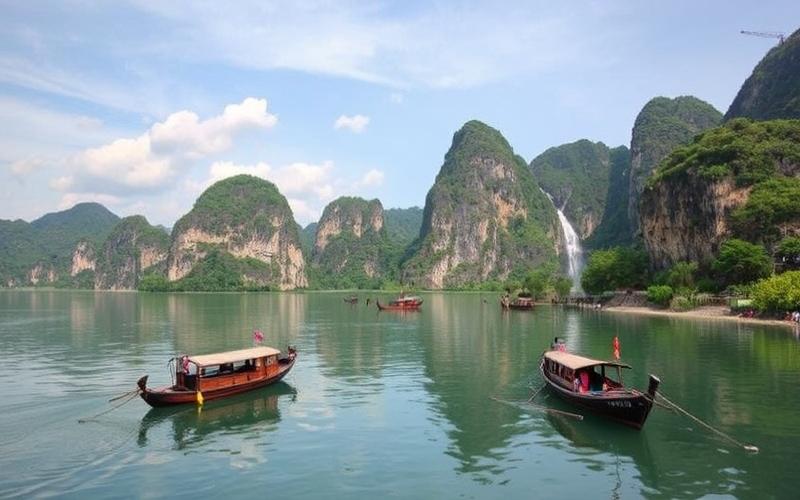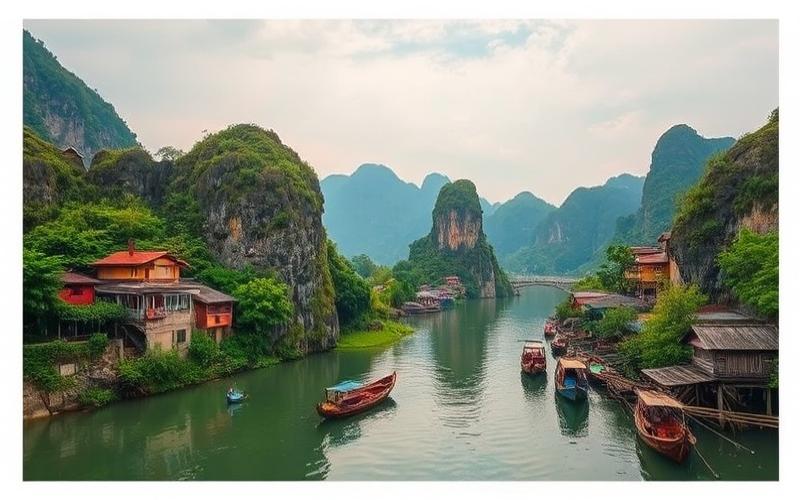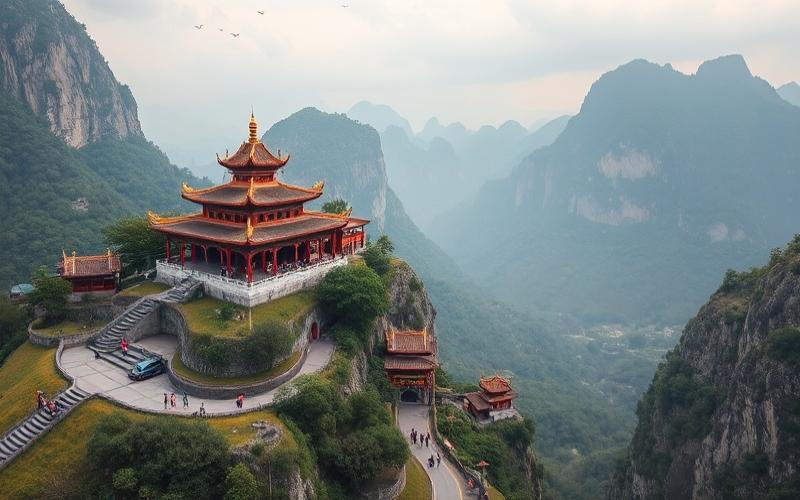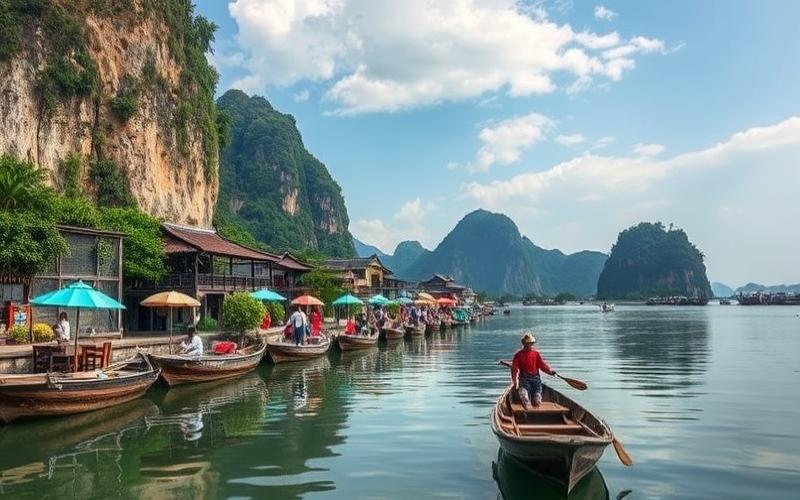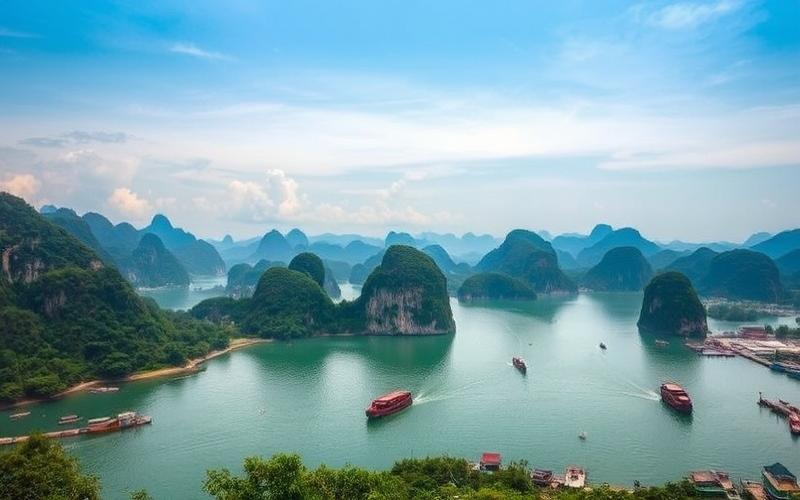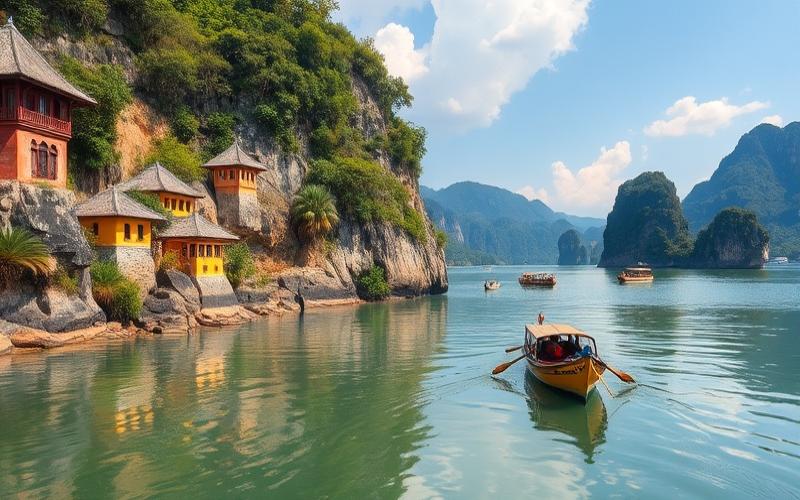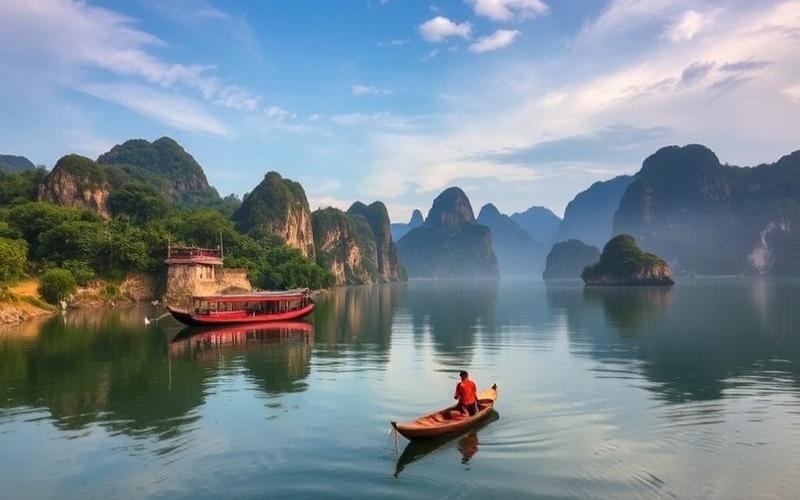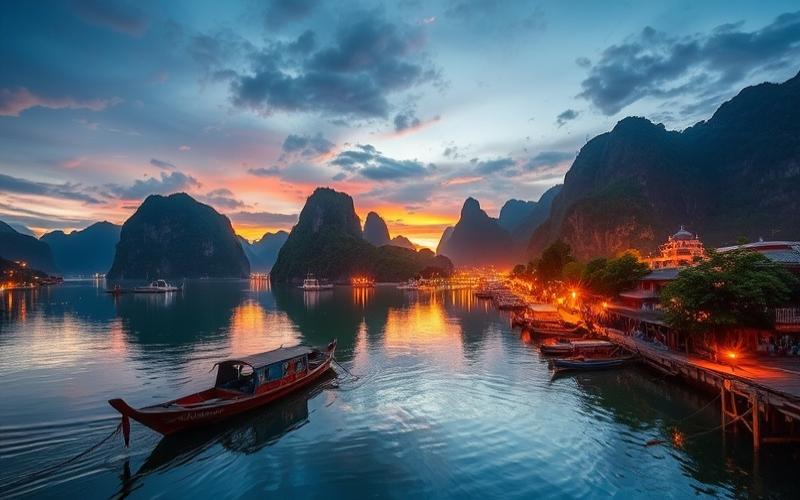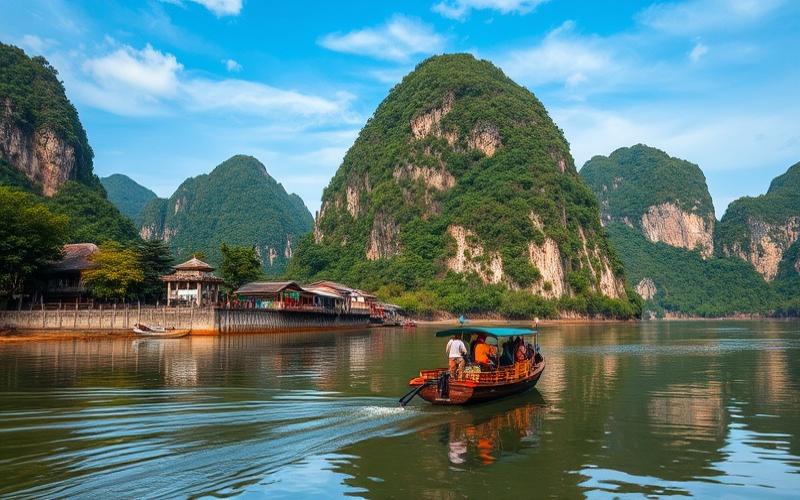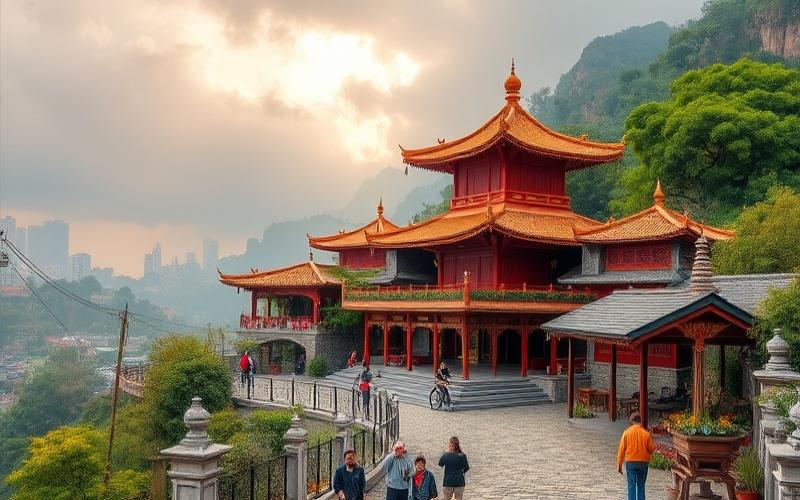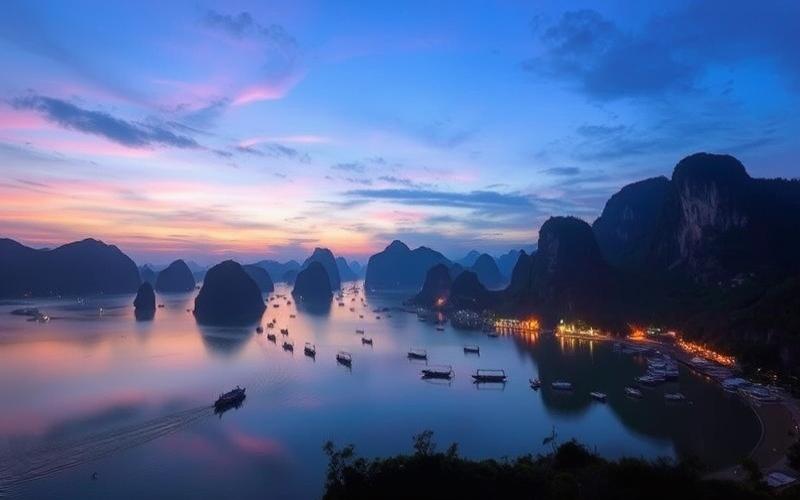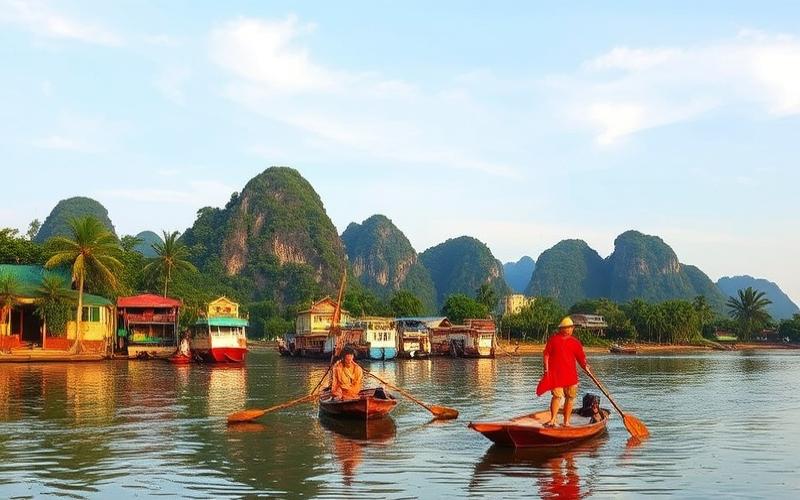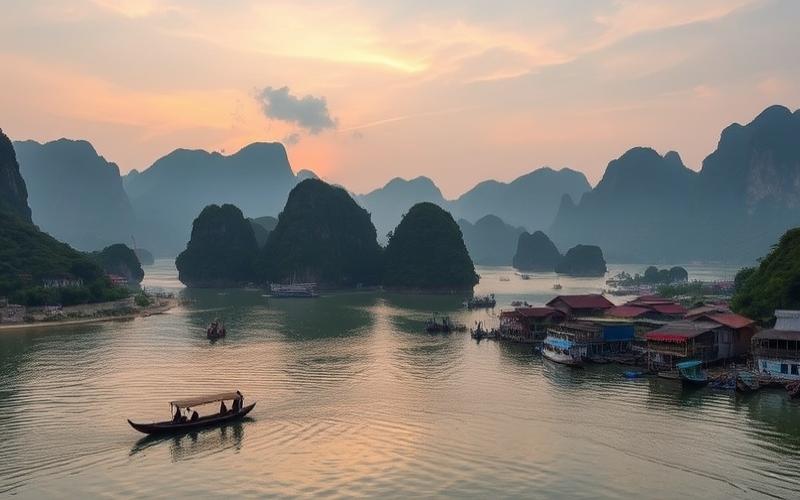
 Published on and written by Cyril Jarnias
Published on and written by Cyril Jarnias
Buying a Hotel in Vietnam: Complete Checklist
Buying a hotel in Vietnam is an exciting adventure that can offer both lucrative opportunities and unique challenges. In this article, we will present you with a comprehensive checklist to navigate through Vietnam’s vibrant hospitality landscape.
From financial considerations to legal aspects and cultural specificities, this list is essential for any investor looking to succeed in this dynamic sector. Whether you’re an experienced professional or new to hotel investment, our guide will help you make informed choices to optimize your investment and achieve a harmonious project.
Good to know:
The Vietnamese hotel market is experiencing strong growth, with steadily increasing tourist demand. Thorough market research is essential before any investment.
Overview of Vietnam’s Hospitality Market
Vietnam’s hotel industry is experiencing rapid growth, driven by booming international and domestic tourism, improved infrastructure, and favorable government policies. By 2025, the hotel market size is estimated to reach $2.87 billion USD with a projected compound annual growth rate (CAGR) of 19.4% until 2033. According to other sector analyses encompassing food service and related services, the hospitality market reaches $7 billion USD in 2024, potentially reaching $20.7 billion USD by 2033.
Current Key Trends:
- Continued increase in international arrivals: over 17.5 million international visitors in 2024, representing an annual increase of nearly 40%.
- Strong recovery of domestic tourism post-pandemic.
- Massive investments in tourism infrastructure: airport expansions (notably in Hanoi and Ho Chi Minh City), new road connections to major sites (Da Nang, Ha Long Bay), development of high-end coastal hotels.
- Upscaling of the hotel inventory with a focus on luxury and personalized experiences.
| Indicator | Value/Forecast |
|---|---|
| Hotel Market Size | $2.87 Bn (2025) / >$10 Bn (2033) |
| Hospitality Sector Size* | $7 Bn (2024) / $20.7 Bn (2033) |
| Annual Growth | Between 12% and nearly 20% |
| International Arrivals | >17.5 million (2024), +39% vs. 2023 |
| Average Occupancy Rates | Between 60% and 75% depending on region |
Key Regions & Dynamic Cities:
- Ho Chi Minh City: Major economic center; strong corporate demand; numerous international projects.
- Hanoi: Strong business/cultural tourism dynamics.
- Da Nang & Nha Trang: Coastal hubs benefiting from rapid urbanization; sustained development of high-end properties.
- Ha Long Bay & Phu Quoc: Nature/luxury destinations highly sought after by foreign investors.
Influential Economic & Policy Factors:
- Robust national economic growth (+6%-7% annually).
- Pro-tourism policies: simplification of long-term e-visas; active international marketing campaigns; tax incentives for hotel investments in certain strategic provinces or coastal areas.
- Public support for tourism promotion digitalization via national/international digital platforms.
Conjunctural Factors/Potential Constraints:
- Strong seasonal fluctuations linked to Asian/European school holidays.
- Increased environmental pressure in certain sensitive tourist areas; growing need to integrate sustainable practices in new/existing hotel projects.
Key Economic Forecasts for Investors:
- The hotel pipeline remains very active thanks to domestic/foreign investments – notably AccorHotels, Marriott International but also local groups Vinpearl/Muong Thanh Hospitality – which are multiplying openings & renovations between now and the end of the decade.
- The “luxury”, coastal “resorts” segments as well as urban business hotels are expected to continue their growth above the overall market (>15%-20% annually expected locally).
- The stable regulatory environment coupled with demographic dynamism provides fertile ground for new entrants as well as organic expansions for established players.
Prospects therefore remain resolutely positive for the Vietnamese hotel sector for this decade.
Investors must, however, pay particular attention to the evolution of regional competition but also to the accelerated adoption of sustainable standards required by an increasingly attentive international clientele.
Good to know:
The Vietnamese hospitality market is experiencing robust growth, driven by a continuous increase in international and domestic tourism, with average occupancy rates reaching around 60 to 70% in major cities like Ho Chi Minh City and Hanoi. Recent investments include the opening of several international hotel chains, attracted by growing demand for both business and leisure stays. The Vietnamese government supports this expansion through favorable policies, including tax incentives and the development of tourism infrastructure. However, economic factors such as currency fluctuations and geopolitical uncertainties can influence economic forecasts, although overall prospects remain optimistic. Coastal regions like Da Nang and Nha Trang, as well as the Central Highlands, show strong growth, thus offering attractive opportunities for investors seeking to diversify their portfolio in a dynamic economy.
Key Steps to Buying a Hotel in Vietnam
1. Preliminary Research
- Identify the hotel’s strategic location: prioritize major tourist areas (Hanoi, Ho Chi Minh City, Hoi An, Da Nang), taking into account accessibility, tourist appeal, and infrastructure.
- Analyze the local market: compare occupancy rates, seasonality, existing competition, and customer profiles. For example, an investor who opted for a boutique hotel in Hoi An benefited from the boom in local cultural tourism.
- Understand Vietnamese laws and regulations on real estate and foreign investment: foreigners can purchase certain types of properties but are subject to restrictions (ownership duration, property types, etc.). It is essential to consult a specialized local lawyer.
Good to know:
Consult chamber of commerce reports and use local consultants to obtain an accurate market analysis.
2. Financial Evaluation
- Explore financing methods: self-financing, borrowing from local banks (often requiring a personal contribution of 10-30%), or partnerships with local investors.
- Consider legal requirements: opening a VND account, payment in local currency, verification of eligibility for ownership.
- Estimate local taxes (transfer tax, VAT, corporate taxes, etc.) and hidden costs (maintenance fees, legal fees, agent commissions, compliance costs).
- Example: A French investor had to budget an additional 2% for maintenance and operational costs, often underestimated during the initial purchase.
| Financing Type | Main Conditions | Points of Caution |
|---|---|---|
| Local Bank | Min. 10-30% contribution, guarantees required | Strong application, variable rates |
| Local Partnership | Joint-venture, management sharing | Clear contract, profit sharing |
| Equity | Freedom, speed | Personal risk |
3. Selecting a Local Real Estate Agent
- Relying on an experienced agent facilitates the search, negotiation, verification of property titles, and understanding of local practices.
- The agent can recommend compliant properties, negotiate prices with sellers, and navigate complex legal procedures.
- Anecdote: An investor saved 15% on the purchase price thanks to negotiation led by an agent who mastered the subtleties of the Ho Chi Minh City market.
Good to know:
Choose an agent who is a member of a recognized association or recommended by expatriates.
4. Inspection and Due Diligence
- Have the hotel inspected by technical experts (building condition, compliance with safety standards, electrical and sanitary installations).
- Verify legal compliance: absence of disputes, valid operating licenses, compliance with accessibility and hygiene standards.
- Review ongoing contracts (staff, maintenance, suppliers) to anticipate future costs.
- Practical examples: An investor discovered an ongoing dispute during due diligence, thus avoiding a risky acquisition.
Good to know:
Always obtain a written inspection report and validation from a local lawyer.
5. Negotiation and Purchase
- Adopt a negotiation strategy based on comparative evaluations, the hotel’s condition, and market trends.
- Negotiate payment terms: non-refundable deposit, installment payments, conditional clauses (obtaining permits, absence of disputes).
- Finalize the acquisition by signing a sales contract compliant with Vietnamese legislation, in the presence of a notary or lawyer.
- Anecdote: A buyer negotiated a price revision clause following the discovery of necessary repairs, thus securing their investment.
6. Legal and Administrative Formalities
- Property registration with local authorities (obtaining the “pink book” for full ownership).
- Tax declarations and payment of transfer duties.
- Obtain operating permits (hotel license, fire compliance, signage permit, etc.).
- Verify the update of insurance contracts.
- Example: After purchase, a team had to wait two months to receive the operating license due to lack of administrative anticipation.
7. Implementation of the Management Plan
- Define an operational management plan: staff recruitment, training to local standards, implementation of internal procedures adapted to Vietnamese culture.
- Consider logistical aspects (supply, local partnerships, reservation management via international platforms).
- Adapt the offering to customer expectations (Vietnamese breakfast, services tailored to Asian and Western tourists).
- Success examples: A hotel in Da Nang doubled its occupancy rate by collaborating with local travel agencies and training its staff in multilingual hospitality.
Good to know:
Surround yourself with a local manager familiar with cultural specificities and the expectations of Vietnamese clientele.
At each stage, preparation, local professional support, and anticipation of administrative constraints are the keys to a successful hotel investment in Vietnam.
Good to know:
To buy a hotel in Vietnam, start with preliminary research on the location and local market, taking into account Vietnamese laws on real estate and foreign investment. Financial evaluation is crucial: inquire about available financing for foreigners, legal obligations, taxes, and potential hidden costs. Working with an experienced local real estate agent facilitates price negotiation and the legal process. Inspection and due diligence involve professional verification of the hotel’s condition and legal compliance, ensuring there are no disputes. Negotiation and purchase require a good negotiation strategy and compliance with Vietnamese legal requirements to finalize the acquisition. After purchase, complete administrative formalities by registering the property and obtaining operating permits. Finally, a management plan adapted to Vietnamese cultural and logistical specificities is essential to successfully launch the hotel’s operations. For example, a comparison with procedures in other countries may reveal that Vietnam offers attractive tax incentives to attract foreign investors.
Due Diligence: What to Check Before Purchase
Legal and Tax Analysis
Before acquiring a hotel in Vietnam, it is imperative to verify:
- Property Titles: Ensure the seller legally owns the property, the title is free of disputes, and all operating permits are valid and transferable.
- Operating Permits: Verify the tourism business license, mandatory for the commercial operation of a hotel by foreign investors (valid for up to 50 years, renewable).
- Tax Obligations: Examine tax compliance, including corporate taxes, property taxes, and any potential tax arrears. Evaluate the optimal tax structure for foreign investors.
- Preliminary Contracts: Ensure initial agreements (exclusivity, confidentiality) are well-drafted and secure the transaction.
Financial Evaluation
List of points to examine:
- Financial statements for the last 3 to 5 years (revenues, expenses, margins, net profits).
- Debt level: Bank debts, supplier debts, potential disputes.
- Asset inventory: Fixed assets, equipment, inventory.
- Verification of cash flows, real profitability, and identification of hidden financial risks.
- Existence of any potential off-balance sheet liabilities.
| Element | Points to Check |
|---|---|
| Revenues | History, seasonality, sources |
| Expenses | Structure, optimization, anomalies |
| Debts | Amounts, due dates, disputes |
| Assets | Value, condition, ownership |
Physical Condition and Maintenance
- Detailed inspection of the building, rooms, common areas, and technical spaces.
- Identification of necessary repairs and estimation of refurbishment costs to meet standards.
- Verification of compliance with local fire safety, hygiene, and accessibility standards.
- Examination of electrical, sanitary, air conditioning systems, and environmental compliance.
Existing Contracts
- Analysis of contracts with:
- Suppliers (terms, duration, termination clauses)
- Customers (groups, tour operators, online agencies)
- Employees (status, seniority, social and legal obligations)
- Identification of long-term commitments, penalty clauses, or potential disputes.
Market Analysis
Study of local competition (category, capacity, positioning, average prices).
Analysis of tourist demand (attendance, seasonality, target clientele).
Evaluation of regional and national growth potential.
Observation of post-COVID hotel sector trends (demand evolution, supply/demand balance).
| Factor | Key Questions to Ask |
|---|---|
| Competition | Who are the main competitors? |
| Demand | What is the tourist traffic? |
| Growth | What are the prospects? |
Reputation Management
- Online reputation check (TripAdvisor, Google, OTAs, social media).
- Analysis of customer reviews to identify recurring issues (cleanliness, service, safety).
- Assessment of customer loyalty and brand image.
- Existing strategies for e-reputation management.
Cultural and Local Aspects
- Awareness of Vietnamese culture in service and management: expectations regarding hospitality, cuisine, respect for traditions.
- Adaptation of offerings (food & beverage, leisure, communication) to the expectations of local and international clientele.
- Knowledge of local business practices, partner networks, and relations with authorities.
Good to know:
Before buying a hotel in Vietnam, it is essential to conduct thorough due diligence, integrating several critical dimensions. On the legal and tax front, verify property titles, operating permits, and tax obligations for foreign investors. Financial evaluation must include a meticulous analysis of financial statements, paying particular attention to debts and assets. Inspect the physical condition of the hotel to ensure compliance with local health and safety standards, identifying necessary repairs. Analyze existing contracts with suppliers, customers, and employees to fully understand ongoing commitments. A market study will inform you about competition and tourist demand, useful for assessing growth potential. Don’t forget to check the hotel’s online reputation to detect potential recurring issues. Finally, familiarize yourself with local cultural practices, vital for meeting customer expectations in a Vietnamese context.
Tourism Statistics and Trends in Vietnam
Recent Tourism Statistics for Vietnam (2025)
- International Tourists (January to June 2025):
10.66 million (+20.7% compared to the same period in 2024) - Domestic Tourists (January to June 2025):
77.5 million - Annual Forecast for International Tourists in 2025:
Up to 28 million, a record target (+50% compared to the 17–18 million target in 2024) - Annual Forecast for Domestic Tourists in 2025:
Between 120 and 130 million
| Year | International Tourists | Domestic Tourists | International Growth (%) |
| Mid-2024* | ~8.84 M | ~64 M | – |
| Mid-2025* | >10.66 M | >77.5 M | +20.7 |
| End of ’25 Target | Up to 28 M | Up to 130 M | +50 (vs. ’24 target) |
Geographical Distribution and Major Attractions
Main Tourist Regions:
- Hanoi
- Ho Chi Minh City
- Da Nang
- Quang Ninh (Ha Long Bay)
- Binh Duong
- Hai Phong
Iconic Sites:
- Ha Long Bay – UNESCO World Heritage Site
- Hoi An Ancient Town – UNESCO Heritage Site
- Sapa & Ha Giang – Mountainous landscapes and ethnic culture of the Northwest
- Mai Chau and Pu Luong Rice Terraces
- Ba Be Lake
Tourist Seasons
List of Seasons:
- International High Season: October–April (drier/cooler climate in the north)
- Low Season: May–September; hot/humid period with monsoon but significant national influx during summer school holidays
Current Vietnamese Tourism Trends
Popular Tourism Types:
List of Trends:
- Ecotourism (green tourism, eco-trekking)
- Cultural Tourism (historical heritage, local festivals)
- Coastal Tourism (beaches, coastal resorts like Da Nang or Nha Trang)
- Wellness & Experiential (spas, family or spiritual retreats)
Key Factors Promoting These Trends: relaxation of multi-country e-visas; targeted international campaigns; rapid adaptation to post-pandemic expectations focused on nature/experience.
Economic Impacts and Local Hotel Market
Direct Effects:
- The sector now represents between 6% and 8% of the national GDP
- Estimated creation of over 5.5 million jobs
- Marked recovery post-pandemic with a continuous increase in hotel revenues (+18% Q1: 21,500 billion VND)
Opportunities for Hotel Investors:
- Growing demand in high-end / eco-lodges / family hotel segments.
- Secondary or still underdeveloped regions attracting new interest thanks to infrastructure development.
- Government policies favorable to foreign investments in hospitality.
Major Challenges:
- Risk of temporary saturation in certain main urban/coastal areas.
- Constant need for innovation in the face of increased demands for environmental sustainability.
- Possible fluctuation depending on the regional/global geopolitical context.
The current dynamism of the Vietnamese tourism sector creates a competitive yet promising environment for hotel investment — strategic vigilance remains essential to anticipate seasonal cycles and the rapid evolution of traveler expectations.
Good to know:
Tourism in Vietnam has experienced a significant recovery since the pandemic, with approximately 18 million international visitors in 2023 compared to 15 million in 2019, marking notable growth. Over 45 million domestic visitors were also recorded, with a marked concentration on coastal regions like Da Nang and Nha Trang, and the cultural attractions of Hanoi and Ho Chi Minh City. The tourist season is high from December to April, while the months from May to September constitute the low season. Ecotourism and cultural tourism are gaining popularity, while coastal tourism remains a pillar. These trends directly influence the hotel market, offering significant investment opportunities, especially in emerging areas. However, investors must be aware of challenges related to market saturation in highly sought-after areas and the need to adapt offerings to new tourist preferences. Compared to previous years, this diversified growth underscores positive economic impacts and a constant need for innovation to capture tourist interest.
Disclaimer: The information provided on this website is for informational purposes only and does not constitute financial, legal, or professional advice. We encourage you to consult qualified experts before making any investment, real estate, or expatriation decisions. Although we strive to maintain up-to-date and accurate information, we do not guarantee the completeness, accuracy, or timeliness of the proposed content. As investment and expatriation involve risks, we disclaim any liability for potential losses or damages arising from the use of this site. Your use of this site confirms your acceptance of these terms and your understanding of the associated risks.




